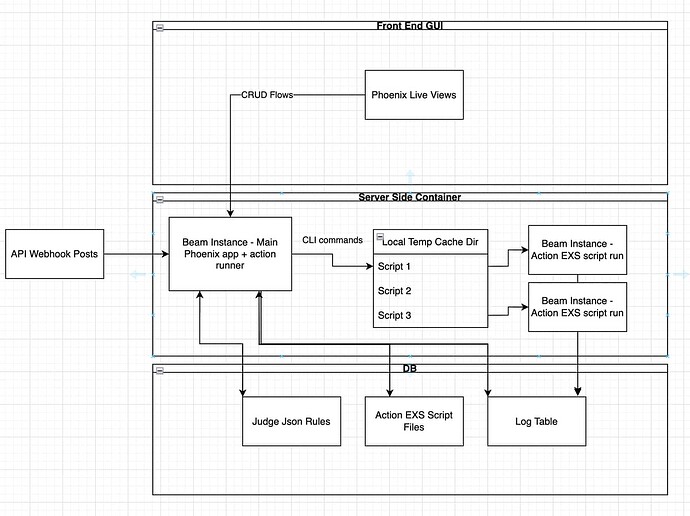Problem Statement:
I am trying to build an ‘action runner’ for judge json rules. In a nut shell, say a json defined rule matches with action string:
{
...rule
"action": "collect_signature"
}
I’m trying to think of best architecture to run that ‘collect_signature’ code. It could be a module name or a script file. The intention is for rules to trigger actions in a dynamic way so actions are easy to maintain separately.
Desired Requirements:
- the action code has its own dependencies/hex packages
- adding new actions does not require app reload/recompile/redeploy of the ‘action runner’ i.e. the actions are dynamically loaded and run somehow.
Idea 1:
standalone exs scripts - Actions are defined in standalone exs files with their own Mix.installs. I tried this already by using Code.require_file/1 to dynamically run an exs file however ran into dependency errors. The ‘action runner’ runtime dependencies had conflicts with the loaded exs dependencies. Need a way to get around that. This seems the most promising however.
Idea 2:
Umbrella project where each action is a separate application. I don’t have experience with umbrella projects but this might be a feasible path. It seems a bit overkill however and I think the action runner would have to be reloaded every time a new action is created (which is a big con).
Idea 3:
Similar to umbrella, load actions as private local packages via a dependency path. The ‘action runner’ would then dynamically load dependencies in its mix.exs. Sudo code like:
defp deps do
for each action_name in actions folder return:
{:action_name, ">= 0.0.0", path: "/actions/action_name"}
end
Then maybe add a Mix task ‘new action’ that loads up the boiler plate for a new action in the correct folder. The main con with this is same as #2 - the action runner would have to be recompiled with every new action.





















